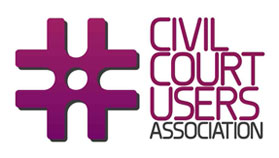Debt Recovery Blog
Third Party Debt Orders
- Principal Solicitor
- October 14, 2021
The court can freeze money that's being held!
A Third Party Debt Order is an order of the court that freezes money held by a person, organisation or institution, such as a bank or building society, which might otherwise be paid to the Debtor against whom you have a judgment. The organisation or person that is holding the money is referred to as the ‘third party’. A Third Party Debt Order prevents the Debtor having access to the money until the court makes a decision about whether or not the money should be paid to you.
What happens next?
The money held by the Third Party must be held solely for the debtor. You cannot apply for a Third Party debt order against a joint bank account unless the judgment debt is owed by all the account holders.
An application for a Third Party Debt Order is a two stage process:
- First you must apply using Form N349 for an Interim Third Party Debt Order which freezes the money held in the Debtor’s bank account until the date of hearing of the Final Third Party Debt Order;
- Once the Third Party Debt Order has been made final by the court, it will order the bank to pay the money direct to you.
Why choose CSB Solicitors?
The most common methods of enforcement may be used alongside Third Party Debt Orders to recover a judgment debt owed to you. However, it is important to make sure that credit is given for any payments recovered through other methods of enforcement and that the Court is notified.
Contact CSB Solicitors, and our experts can advise you on how to go about making this application.
Further Blog & Legislation Categories
The contents of our blogs is to be treated as general guidance only. Please do not take any action based on the content of our blogs unless you have specifically instructed us to provide you with legal advice. CSB Solicitors do not accept responsibility for any errors or inaccuracies, loss, or damage in circumstances where there is no formal retainer between us and where we have not given you specific advice relating to a matter and where you have given us full details of the same.
The contents of our blogs are based on English Law, and because they contain historical material, that information may be out of date. For that reason, please consider the date that the blog was posted and remember that the laws may differ in different legal jurisdictions.










